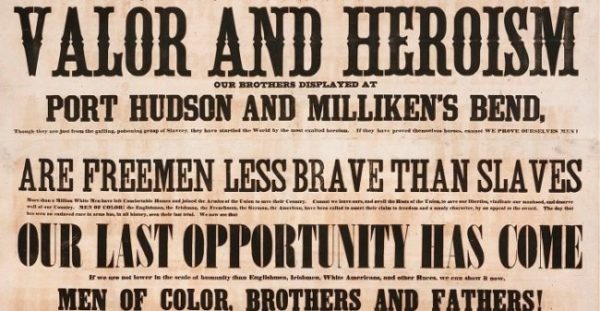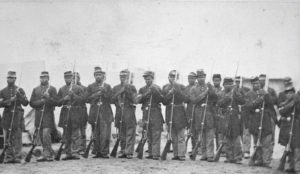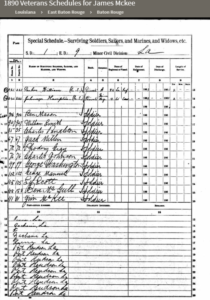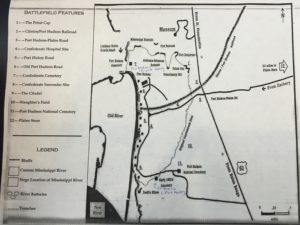The fact that many formerly enslaved United States Colored Troops(USCT) died while serving and fighting in the Civil War is something that has weighed heavily upon my heart for quite sometime. Sometimes referred to as contraband, many did not survive to experience the freedom that they were fighting for. Consider also the USCT who may have been free prior to the war, who fought and made the ultimate sacrifice so that others might be free. Several weeks ago while conducting research, I encountered this database on Ancestry.com. U.S., Register of Colored Troop Deaths During the Civil War, 1861-1865
“By the end of the Civil War, roughly 179,000 black men (10% of the Union Army) served as soldiers in the U.S. Army and another 19,000 served in the Navy. Nearly 40,000 black soldiers died over the course of the war—30,000 of infection or disease. Black soldiers served in artillery and infantry and performed all noncombat support functions that sustain an army, as well. Black carpenters, chaplains, cooks, guards, laborers, nurses, scouts, spies, steamboat pilots, surgeons, and teamsters also contributed to the war cause. There were nearly 80 black commissioned officers. Black women, who could not formally join the Army, nonetheless served as nurses, spies, and scouts, the most famous being Harriet Tubman (photo citation: 200-HN-PIO-1), who scouted for the 2d South Carolina Volunteers.
Because of prejudice against them, black units were not used in combat as extensively as they might have been. Nevertheless, the soldiers served with distinction in a number of battles. Black infantrymen fought gallantly at Milliken’s Bend, LA; Port Hudson, LA; Petersburg, VA; and Nashville, TN. The July 1863 assault on Fort Wagner, SC, in which the 54th Regiment of Massachusetts Volunteers lost two-thirds of their officers and half of their troops, was memorably dramatized in the film Glory. By war’s end, 16 black soldiers had been awarded the Medal of Honor for their valor.“1
The Veterans
One of my ancestors who served in the Civil War and survived was James McKee. The only reason that I know that he served and survived the Civil War is because I found him on an 1890 Veterans Schedule (Figure 1) in Port Hudson, Louisiana and also in a 1900 U.S. Federal Census record. I have written about him before. A free man of color from Ohio who eventually made his way to Port Hudson, Louisiana by way of Wisconsin.
Here is the record that let me know that he served. He is along with the other men who served in various USCT regiments. Twenty four years after the Civil War ended they are still living in Port Hudson and Zachary, Louisiana
| Transcribed 1890 Veterans Schedule from Figure 1 |
|---|
| Parker Williams |
| Johnson Hampton |
| Ben Mason |
| William Smith |
| Charles Pendleton |
| Jack Miller |
| Phodery Gray |
| Charles Johnson |
| George Washington |
| George Manuel |
| Sy (Sylvester) Scott |
| Ben McGull |
| Jim McKee |
I don’t know his exact role or in what unit, regiment, or company he served but I do believe that his involvement in the Civil War was the reason he ended up in Port Hudson, Louisiana. I have searched exhaustively and have been able to find only a few records. I could not find him here U.S., Colored Troops Military Service Records, 1863-1865 or here Soldiers and Sailors Database. I have also checked pension applications at NARA for James McKee but perhaps these other men may have pension applications that might shed light on James McKee and his involvement in the war.
Battlefields and Cemeteries
I visited the Port Hudson State Historic Site several years ago seeking additional information on James McKee. They gave me a map and informed me that the black soldiers who died in the Civil War were not buried in the main cemetery with the white soldiers and officers, but in separate cemeteries. I was able to visit one of them and I have marked them both on this map based on the information that the Park Officials gave me.
I hope that you will take time to remember those who served and paid the ultimate price for our freedoms. If you would like more great resources, subscribe so that you can be notified when I write a new blog.
Many thanks to Aunt Lucy and Cousin Connie for patiently escorting me to these battlefield and church grave sites and for being such gracious hosts. Thanks also to my other cousins who are always hosting , spending time with me, and filling me in on who is who and whats what with regard to our family and our history.
1Freeman. “Black Soldiers in the U.S. Military During the Civil War” The National Archives, Sep. 2017,




Joel Johnson
Thank you for sharing. I’ve ancestors who served too and it can be very challenging to find the documentation but don’t give up looking. The vast amount of NARA records are not transcribed including USCT pension records. It is also entirely possible McKee served in an white non-USCT troop. Juanita P. Moss discovered that thousands of Blacks served in white troops in various yeoman roles. Her books Forgotten Black Soldiers who served in White Regiments Vol 1 & 2 may be helpful to you. Best of luck!
Karen Galloway Post author
Joel,
Thank you for your encouragement. I have encountered several newspaper articles that list men who joined various Wisconsin Regiments and I see a James McKee listed in the county in which he was living. I have pulled several pension files for James McKee but they ended up not being my James McKee. Over the years I have often wondered if serving in a white regiment was a possibility for James. I will be check out the Forgotten Black Soldiers book. Thanks for the recommendation!
Kristin
I wonder if he served under a different name.
Karen Galloway Post author
Kristin, I have wondered that as well. But I wonder why one would do that. I have check for Jim and John. There were so so many men with McKee surname that fought in this war.
man
Recognition and acceptance never came easily for African Americans in the army. During the postwar years, black troops continued to face skepticism and discrimination. The army remained segregated until after the World War II (1939–1945). Still, by the end of the Civil War, the black soldiers of the USCT had earned a permanent place in America’s military establishment.